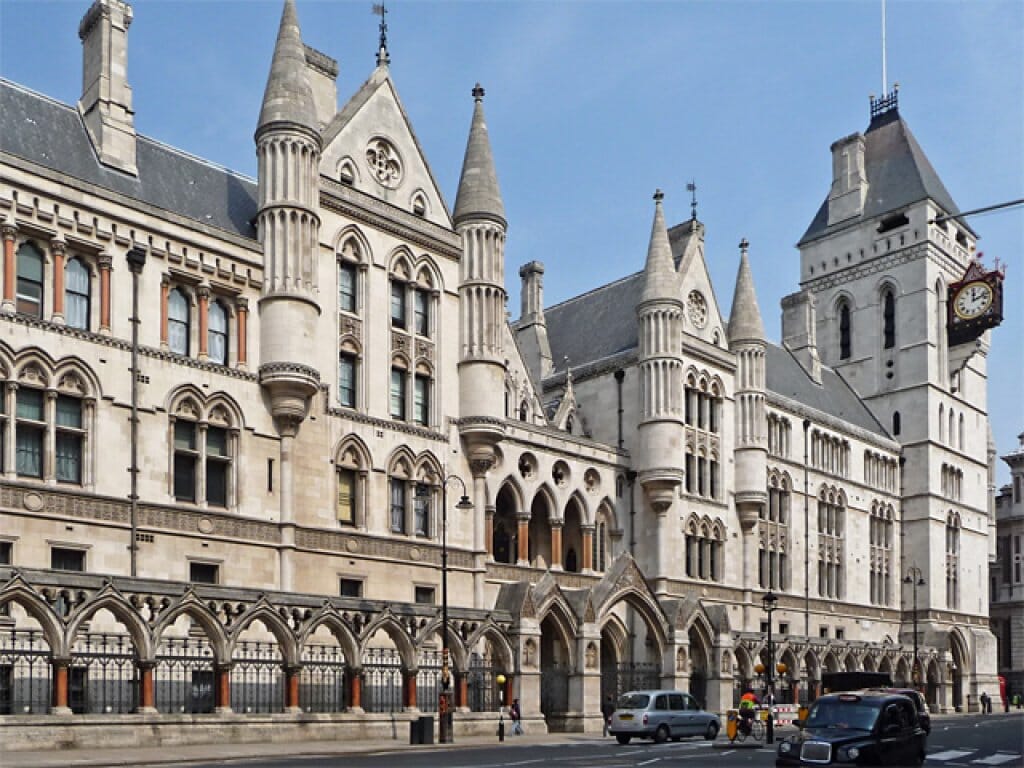
Maitland Walker has a nationally recognised practice in litigation and dispute resolution and takes instructions in relation to most types of commercial litigation. The team is headed by Julian Maitland-Walker, the firm’s Senior Partner and specialises in complex, high value disputes with a particular niche in claims with multiple claimants although we represent a variety of clients in both the High Court and County Court in a range of types of claims varying in value from tens of thousand pounds to many millions of pounds.
Julian is assisted by Sheree-Ann Virgin, Associate Solicitor and David Hollier, Assistant Solicitor. The team are based in Maitland Walker’s Minehead office but all travel to Taunton, London and elsewhere to meet clients’ needs and attend Court. Generally, as the partner with conduct of your dispute, Julian will set the strategic direction and will ensure that the team execute the plan to achieve it and will head the team implementing the various stages of the litigation.
What is commercial litigation?
Commercial litigation involves every type of dispute within a business context. The more general types of commercial litigation that Maitland Walker deal with involve:
- Contractual disputes;
- Debt disputes;
- Shareholder disputes;
- Professional negligence claims; and
- Company and partnership disputes.
Here at Maitland Walker we also specialise in commercial litigation involving:
- Property disputes;
- Intellectual property disputes;
- Competition law disputes;
- Group actions;
- Any aspect of European law;
- Tax disputes;
- Civil fraud claims; and
- Financial services claims.
This guide
This guide provides an outline of the different stages of commercial disputes in the courts of England and Wales.
It is intended only as a general and broad guide of the litigation process and should not be relied on because it is based on court rules that may subsequently change and it does not take into account certain post trial stages like enforcement and appeals and various special rules that apply to certain types of case, e.g. (i) the rules of specialist courts like the Patents County Court, Competition Appeals Tribunal, Tax Tribunals, European General Court and Court of Justice of the European Union, UK appeal courts; (ii) the rules of specialist procedures like Part 8 claims which can be used in certain types of claim, e.g. in commercial lease renewal proceedings; (iii) the rules of specific pre-action protocols. In short, every case will differ and if you or your business becomes involved in a dispute we recommend that you seek immediate legal advice.
Before commencing proceedings
Investigations into merits of claim / defence and / or counterclaim
It is essential for a potential claimant or defendant to take advice on the merits of their potential claim or defence or counterclaim and on the length of time the litigation will take from start to finish.
At Maitland Walker this would usually involve an initial consultation either at one of our offices (in Minehead, Taunton or London) or by telephone to discuss the issues involved in the dispute. Further information and / or supporting evidence will then usually be requested from you to enable us to give a view on the merits of the potential claim, defence or counterclaim. Sometimes we will, at this stage, recommend seeking further advice on the merits from an external specialist barrister – usually where the dispute involves complex issues or novel questions of law.
Consideration will be given to a potential opponent’s ability to pay the claim or counterclaim and / or your costs as this will be an important factor in any decision as to whether you want to commence a claim and early advice will be given on the litigation process and initial considerations like preserving privilege and documents for disclosure.
Costs
It is at the initial investigation stage that Maitland Walker will set out the anticipated costs of the litigation broken down by stage and the cost consequences if you are successful or not in the litigation.
Cost is obviously one of the most important factors that might influence your decision as to whether to bring a claim or defend it and / or make a counterclaim. The team at Maitland Walker will advise you fully on anticipated costs and on whether other funding options might be available like a Conditional Fee Agreement, third party funding, after the event insurance or a combination of these funding options to provide a complete package of funding if the prospects of success are high and the likely proceeds substantial. Conditional Fee Agreements and third party funding options are normally on terms that if the litigation is successful a share of the proceeds is payable to the funder and any premium payable for after the event insurance would also be payable from the proceeds as it is not recoverable from your opponent even if you are successful.
Compliance with the relevant pre-action protocol
In some cases, a specific pre-action protocol will apply – e.g. in relation to debt claims, professional negligence claims and defamation claims. If so, then you will need to comply with the detailed requirements of the relevant specific protocol.
Even if a specific pre-action protocol does not apply then you will need to comply with the general pre-action protocol which requires a potential claimant to write a detailed letter before claim setting out in full the basis of the claim and exchanging information and documents on which it relies. A potential defendant should respond in detail to the letter before claim within a reasonable period and the parties should conduct, where possible, genuine and reasonable negotiations to try and settle the claim.
Alternative dispute resolution
The parties should consider whether the dispute is suitable for a form of alternative dispute resolution (ADR) rather than or before litigation. ADR can take the form of negotiations through correspondence, an informal round table meeting or more formal arrangements such as mediation, adjudication or arbitration. Our team at Maitland Walker will be best placed to advise you as to which forms of ADR are best suited to your dispute.
Commencing proceedings and the pleadings
Claim form and particulars of claim
The team at Maitland Walker will advise you in which court to bring your claim as there are different rules for specific case types. As a general rule, claims with a value above £100,000 will usually be issued in the High Court although they may be transferred to a County Court if they do not raise complex issues and claims below £100,000 will usually be issued in a County Court. A court fee is payable by the Claimant upon issue of the claim and the team at Maitland Walker can advise you on what the relevant court fee will be as it is dependent on the value of the claim.
The Particulars of Claim will set out the alleged facts on which the claim is based and what remedies are being sought by the Claimant from the Court. The Claimant or court must serve the claim form and particulars of claim on the Defendants within four months of the date of issue of the claim, or six months if the Defendants are not based in England or Wales.
Defence and any counterclaim
A Defendant has 14 days to file a defence (or 28 days if he has filed an Acknowledgment of Service form) responding to Particulars of Claim if he does not admit the claim. This deadline may be extended by up to 28 days by the parties by agreement or on application to the court.
If a Defendant fails to acknowledge service or submit his defence within the required time limits the Claimant can obtain judgment in default – an automatic judgment in the Claimant’s favour without the need for a hearing, although a Defendant can apply for this to be set aside if he can show the required grounds.
A Defendant might bring a counterclaim against the Claimant or a third party that he wishes to bring in as a Defendant. A fee is also payable for bringing a counterclaim which is, like the issue fee, dependent on the value of the counterclaim.
The defence will deal with each issue raised in the Particulars of Claim stating whether each allegation is admitted, denied or to be proved by the Claimant.
Reply
A Claimant can, if he wishes, serve a reply responding to the points raised in the Defence and if a counterclaim is issued, the Claimant will likely serve a Defence to the Counterclaim.
At Maitland Walker we provide clear and practical advice having taken into account all of the options available to you.
For more information on the process or if you want some advice, please do not hesitate to contact Sheree-Ann Virgin by telephone on 01643 707777 or by e-mail to sheree-ann.virgin@maitlandwalker.com
Part 2 of this blog dealing with the post pleading stages of commercial litigation up to trial (including allocation, directions, costs and case management, disclosure and witness evidence) and the trial itself will be coming soon.
Talk it over
with an expert
with one of our friendly and professional team
